What do Trump voters expect from the President-elect and how has he been doing in his first month as PEOTUS? On December 13, pollster Peter D. Hart will conduct a focus group in Cleveland to ask these questions.


What do Trump voters expect from the President-elect and how has he been doing in his first month as PEOTUS? On December 13, pollster Peter D. Hart will conduct a focus group in Cleveland to ask these questions.

In 2014, 35,000 walruses crowded ashore on an Alaskan beach instead of resting on ice floes. In a newly published case study, researchers studied TV news coverage of the walrus "haul-out" and people's selective exposure to it.
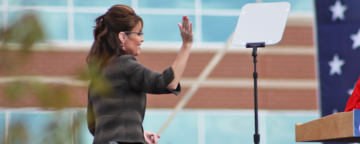
Annenberg Public Policy Center Director Kathleen Hall Jamieson was featured in a PBS documentary series on the most influential presidential campaigns of the last 50 years, including that of 2008 vice-presidential nominee Sarah Palin.
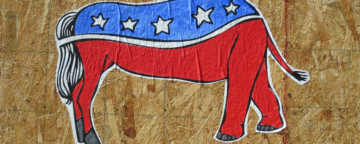
Veteran pollster Peter Hart will be conducting his seventh and final focus group of the 2016 presidential race on October 25, sitting down with "late-decider" voters in Charlotte, N.C.
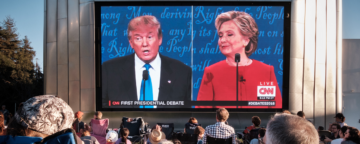
A new Annenberg Public Policy Center study of the first 2016 presidential debate finds that what Hillary Clinton and Donald Trump they say about the issues – and don’t say – affects what viewers learn about their plans.
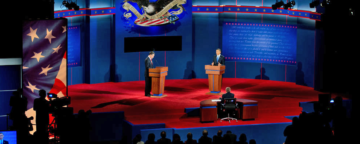
The Internet Archive and APPC announced a collaboration to help journalists and the public better understand how TV news and talk shows present the presidential debates and what the public learns from them.

In an op-ed in the Washington Post, Kathleen Hall Jamieson said debates were an essential way for voters to learn about the presidential candidates, and that Donald Trump should participate in all three debates against Hillary Clinton.
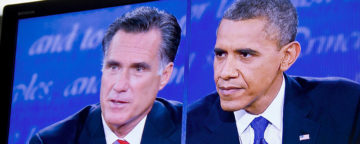
In a new white paper, "Presidential Debates: What's Behind the Numbers?" researchers from the Annenberg Public Policy Center take a close look at the data on the audience, ratings, and motivations of viewers of general-election presidential debates.
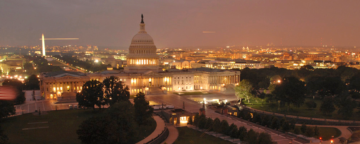
Only a quarter of Americans can name all three branches of government, the poorest showing on that question in a half-dozen years, a new survey on civic knowledge has found. The GOP presidential candidate was known to only 84 percent of the public.